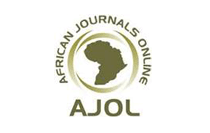Mansoura Veterinary Medical Journal
Document Type
Original Article
Subject Areas
Biochemistry and Physiology
Keywords
Myrtus communis, Rats, THYROID
Abstract
The aim of this study was to test the effect of the ethanolic extract of Myrtus communis leaves on the thyroid gland tissue in white rats . The animals were given a dose of 2 g/kg orally. 43 rats were divided into 3 groups. The first group was given the dose daily for 7 days . The second group was treated for 14 days. The third group was given the dose for different hours , and after the end of each treatment period , blood samples were taken and the levels of thyroid hormones (T3 , T4) and thyroid stimulating hormone (TSH) were determined . Each group included some animals as a control. Some of the animals treated with the extract showed bleeding through mouth and nose , were lethargic , tired and lost appetite . Furthermore, the weight of these animals was significantly lower than those in the controls. The animals treated with the extract had a significant increase in the levels of TSH, T3 and T4. Thyroid gland of treated rats showed an increase in the size of thyroid follicles especially those found at the periphery of the gland . These follicles became irregular and distended by an accumulation of heterogeneous colloid with an increase in the amount of vacuoles at the periphery of this colloid. Moreover, some inflammatory cells appeared inside the colloid of some follicles. However, follicular cells appeared compressed with flattened nuclei. Some follicles with ill-distinct boundaries were also appeared. The aim of this study was to test the effect of the ethanolic extract of Myrtus communis leaves on the thyroid gland tissue in white rats . The animals were given a dose of 2 g/kg orally. 43 rats were divided into 3 groups. The first group was given the dose daily for 7 days . The second group was treated for 14 days. The third group was given the dose for different hours , and after the end of each treatment period , blood samples were taken and the levels of thyroid hormones (T3 , T4) and thyroid stimulating hormone (TSH) were determined . Each group included some animals as a control. Some of the animals treated with the extract showed bleeding through mouth and nose , were lethargic , tired and lost appetite . Furthermore, the weight of these animals was significantly lower than those in the controls. The animals treated with the extract had a significant increase in the levels of TSH, T3 and T4. Thyroid gland of treated rats showed an increase in the size of thyroid follicles especially those found at the periphery of the gland . These follicles became irregular and distended by an accumulation of heterogeneous colloid with an increase in the amount of vacuoles at the periphery of this colloid. Moreover, some inflammatory cells appeared inside the colloid of some follicles. However, follicular cells appeared compressed with flattened nuclei. Some follicles with ill-distinct boundaries were also appeared.
How to Cite This Article
Al-Zail, N; Aboalhaj, A; El-Gharbawy, S; and Abd El-Gawad, M
(2017)
"PHYSIOLOGICAL AND HISTOLOGICAL STUDIES ON THE EFFECT OF MYRTUS COMMUNIS EXTRACT ON RAT’S THYROID GLAND,"
Mansoura Veterinary Medical Journal: Vol. 18:
Iss.
1, Article 22.
DOI: https://doi.org/10.21608/mvmj.2017.127350
Receive Date
2017-09-12
Accept Date
2017-11-16
Publication Date
12-12-2017






